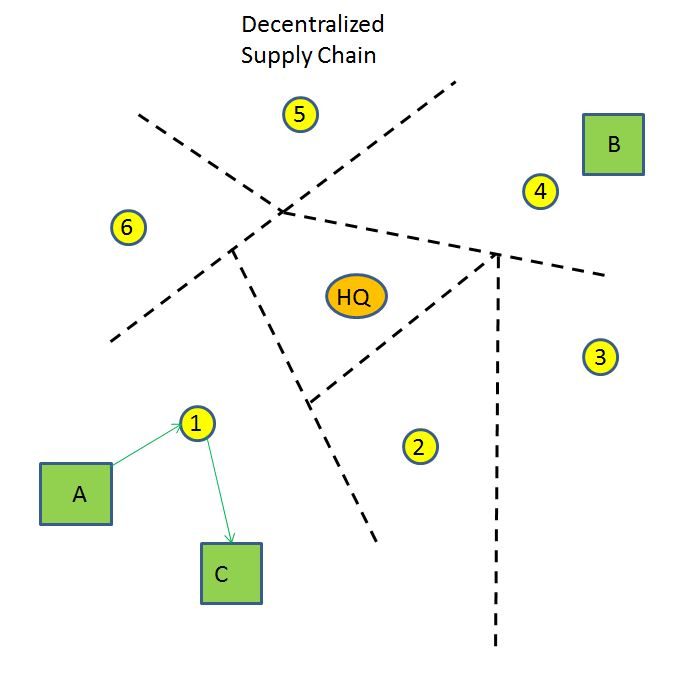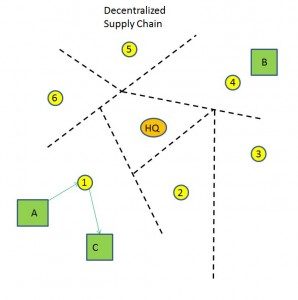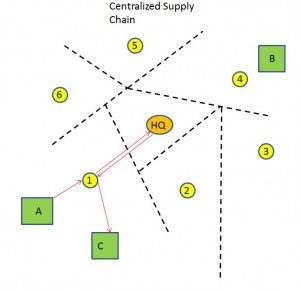http://www.ebnonline.com/author.asp?section_id=3315&doc_id=268703&
In today’s globalized economy, supply chain professionals work together to deliver products to the end customer while working with different organizations and different business units within the same organization. During this process, supply chain managers face a challenge in controlling inventories and costs while maximizing customer service performance.
A supply chain — a network of production and exchange relationships — spans multiple levels of production or task decomposition to let a producer buy inputs and sell outputs. Traditionally, supply chains have been formed and maintained over an extended period with extensive human interactions. Companies around the world base their business models on offering a range of products to satisfy the ever-changing consumer demand.
The majority of multi-national corporations (MNCs) have a centralized supply chain. This brings the entire decision-making process to a centralized location (the MNC headquarters) and enables the MNC to centralize production and profits.
As Lee and Billington wrote in 1993, “Centralized control means that decisions on how much and when to produce are made centrally, based on material and demand status of the entire system.” This approach turns out to be extremely inefficient for large corporations, leading to poor customer service. Another drawback is that a centralized supply chain leads to increased centralization of the entire economy, leading to high population densities in cities (more jobs at the centralized locations of MNCs) and rural economies going into doldrums because of chronic unemployment.
Decentralizing improve supply chain performance. In a decentralized supply chain, individual units make decisions based on local information. Such a system makes it easy to incentivize players to act in co-operation, making the entire supply chain efficient.
In today’s globalized economy, MNCs are trying to capture marketshare through centralized supply chains. In these cases, all the profits from operations are transferred to a centralized location (corporate headquarters). This results in centralized planning and increases the concentration of wealth in hands of a few.
A decentralized supply chain has a lower wealth concentration, and the rational distribution of wealth that results supports better macro-economic growth through higher consumer purchasing power and lower taxes. Additionally, since each individual player has a smaller influence on the entire supply chain, individual decision makers have less to gain by behaving in an opportunistic way.
Each individual decision maker has fewer profits to forgo by acting in an opportunistic way and has a broader customer base to gain by acting in the best interest of the supply chain. Hence, the decentralized supply chain leads to smaller organizations and lower probability for mergers and acquisitions. A decentralized supply chain leads to higher co-operation over competition among entities in a supply chain. By placing a higher value on building a relationship with the end customer, decentralization leads not only to overall customer satisfaction, but also results to healthier long-term relationships with end customers.
The decentralization of the supply chain also results in increased flexibility and decentralized decision making. It engenders better customer satisfaction by guaranteeing product delivery through an alternate route in cases where the regular supply chain would be disrupted by unforeseen events like natural disasters and social and political instability. Decentralization has also demonstrated good performance in emerging market co-operatives, urban logistics, micro-retailing, etc.
In today’s world, the model of the decentralized supply chain has much to offer in terms of efficiency and outcome.




Recent Comments